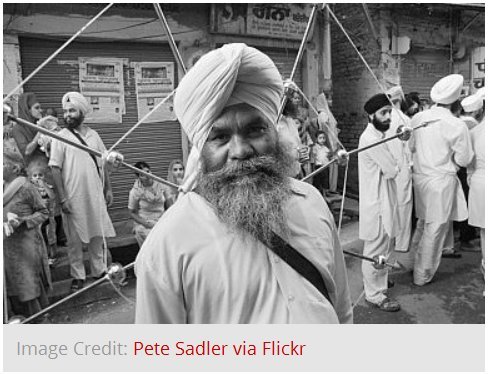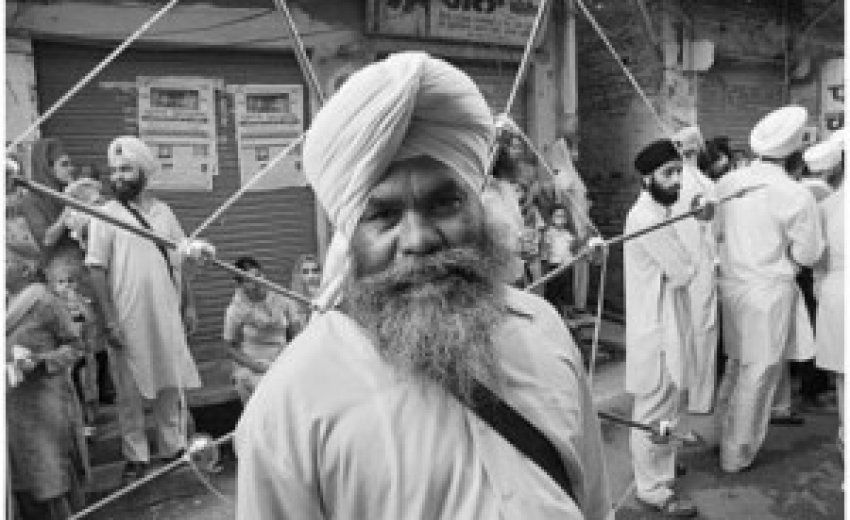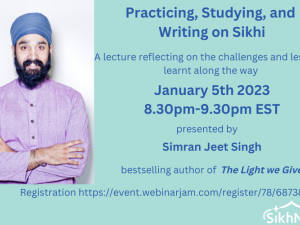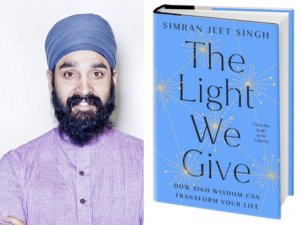The June 1984 anti-Sikh violence has resonance for India’s minorities today.
 June 13, 2014: As millions around the globe continue to celebrate the election of India’s controversial new head of government, Prime Minister Narendra Modi, millions of others have been left scratching their heads, wondering how a notorious perpetrator of human rights violations could be elected to lead the world’s largest democracy.
June 13, 2014: As millions around the globe continue to celebrate the election of India’s controversial new head of government, Prime Minister Narendra Modi, millions of others have been left scratching their heads, wondering how a notorious perpetrator of human rights violations could be elected to lead the world’s largest democracy.
The global community has expressed serious concern regarding what Modi’s meteoric rise means for the developing Indian nation. While he has been hailed as a savior for India’s stagnating economy, both Modi and the Hindu Nationalist party he represents – the Bharatiya Janta Party (BJP) – have been linked to state-organized atrocities targeting minority communities.
Modi’s state administration oversaw the 2002 anti-Muslim pogroms in Gujarat, which claimed over one thousand lives and injured thousands of others. The global community has held him accountable for this massacre, to the extent that up until his prime ministerial appointment, the U.S. government refused to grant him a visa.
Modi’s ascent to political leadership has struck a nerve with religious minorities. Communal violence has long affected minority communities in India, and this is not the first time an individual accused of the murder of Indian civilians has been slated to lead the country. This fact is especially poignant this week, as Sikhs around the globe commemorate the anniversary of the anti-Sikh massacres in June of 1984.
Thirty years ago this week, Prime Minister Indira Gandhi ordered a military assault on the historical epicenter of the Sikh religion, Darbar Sahib [Golden Temple] of Amritsar, Punjab. The Indian Army planned its attack to coincide with a day on which the Sikh community traditionally gathers at Darbar Sahib, a decision that directly resulted in thousands of civilian casualties. The Army also attacked about 40 other gurdwaras (places of Sikh gathering and worship) throughout the Indian state of Punjab on the same day.
As noted by the respected civil liberties collective, Citizens for Democracy, the Indian government imposed a media blackout and manipulated international perceptions of the massacres. The state invoked the pretense of terrorism and framed the military assault as a necessary intervention. To this day, most accounts of the violence use the Army’s sanitized codename – “Operation Bluestar.” The Sikh community, however, has remembered this event as a ghallughara – a massacre of genocidal proportions intended to strike at the heart of its collective psyche.
The anti-Sikh violence of June 1984 is not the first ghallughara in Sikh history, nor is it the first assault on Darbar Sahib of Amritsar. Sikhs have long been targeted in their homeland of South Asia and consider the military assault of 30 years ago as the third such ghallughara in which the state has attempted to devastate and exterminate its own Sikh citizens. During the first Sikh Holocaust of 1746 ruling authorities offered monetary rewards for the capture and slaughter of practicing Sikhs. Less than 20 years later, the Great Holocaust of 1762 nearly wiped out the entire Sikh population.
The Sikh community has endured a long history of persecution at the hands of the state, yet Sikhs themselves do not understand oppression in the frame of victimhood. Sikh memory primarily functions to edify and inspire, and the word “victim” is not part of the Punjabi or Sikh lexicon. Rather than recalling these massacres as moments of hopelessness and despair, Sikhs remember these massacres in the spirit of chardi kala (perpetual optimism).
This affirmative outlook does not take away from the seriousness with which Sikhs view and address issues of injustice. The Sikh religion expects all followers to serve humanity and to challenge injustice, and this conviction has historically positioned the community at the center of political persecution, particularly in moments when leadership enacts and engages in unjust practices.
This historical positioning seems important at the present moment. This week, as the Indian nation grapples with the appointment of a public figure tied to serious human rights violations, it also commemorates the 30th anniversary of the anti-Sikh massacres and state-sponsored assault on Darbar Sahib in Amritsar, Punjab. Memories of violence targeting minority communities in the more recent past, coupled with the emergence of a new leadership carrying a Hindu nationalist agenda in the present, leaves minority communities especially anxious about what they might expect in India’s uncertain future.
Simran Jeet Singh is currently completing his Ph.D. at Columbia University. He also serves as a Security Fellow for the Truman National Security Project, the Senior Religion Fellow for the Sikh Coalition, and the Scott and Rachel F. McDermott Fellow for the American Institute of Indian Studies.





